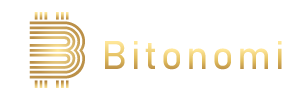Helium’s native token HNT experienced a significant surge of 44% over the course of a week, reaching a high of $5.57. In the past 24 hours, the daily trading volume of HNT saw a spike of 225%. Currently, Helium has a network of 401,817 decentralized mobile hotspots worldwide.
The concept of Decentralized Physical Infrastructure (DePIN) has been gaining attention in the crypto community as the next revolutionary narrative. Helium, a decentralized wireless network builder based on the Solana blockchain, is one of the projects leading this paradigm shift. In the past 24 hours, Helium’s native token HNT has emerged as one of the top gainers.
HNT experienced a pump of over 17%, reaching a high of $5.575. Over the course of a week, the token has seen a surge of 44% from $3.98 to a high of $5.57. Analyzing the price chart with a 4-hour timeframe, HNT’s entry into an uptrend is confirmed by a positive moving average cross (MA Cross).
It is worth noting that the relative strength index (RSI) of HNT has entered the overbought zone according to the above chart. At the time of writing, the altcoin is trading at $5.33 with a market cap of $856 million. The daily trading volume of HNT reached $68.2 million, recording a surge of 225%.
Meanwhile, other tokens in the Helium ecosystem have also shown positive market dynamics. The native token of Helium Mobile Network, MOBILE, saw a 1.65% increase in the past 24 hours, reaching $0.002834. The token of Helium IoT Network, IOT, surged 15% to reach $0.001186.
In terms of progress, in December of last year, the Helium Foundation announced plans to expand its mobile coverage, starting with a $20 per month plan for mobile phones in the US market. Since then, it has gained a subscriber base of 62,463. The number of Helium-powered mobile hotspots worldwide has also increased to 401,817. The revenue of the Solana-based DePIN project has seen a remarkable year-to-date increase of 3546.7%, rising from $35.9K to $1.31 million.
Additionally, various decentralized mobile plans, such as free WiFi and international roaming, have been introduced to encourage users to join the era of decentralized wireless mobile networks.


